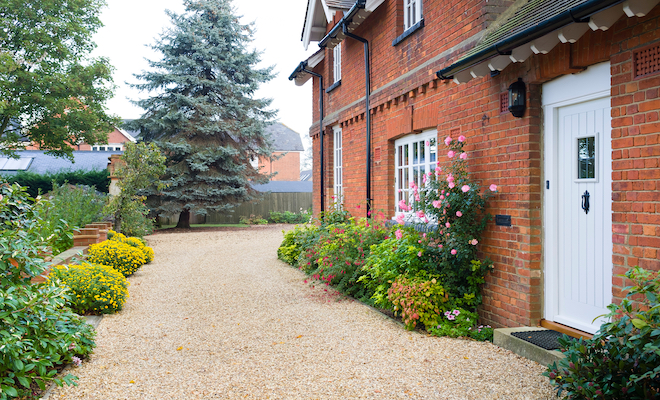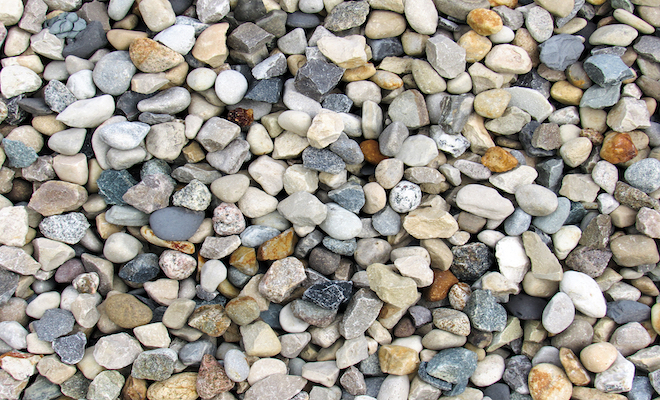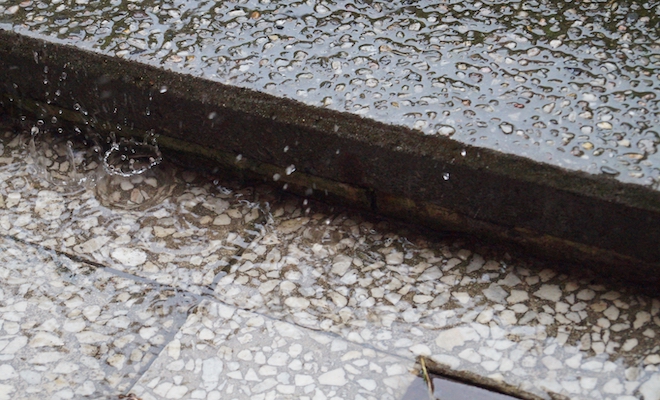Gravel Driveway Cost
Last updated 23rd March, 2025
Want to know how much you’d pay to have a gravel driveway added to your home?
In this guide, we’ll discuss the various costs involved, added costs that you may incur, and other relevant topics such as what the work actually entails.

How Much to Gravel a Driveway?
To fix a gravel driveway that is 20m², you’d be looking at spending a total of £1,400 to £2,000, while for a 40m² alternative, you’d be looking at a cost of £2,300 to £2,800, although your bill would land about £3,500 to £4,000 for a 60m² driveway.
But that’s not all…
Gravel Driveway Prices
The cost of installing a gravel driveway would depend on a variety of factors such as ease of access, the type and size of the driveway, and the specifics of the material used.
| Size of Driveway | Labour | Supplies | Overall Cost |
|---|---|---|---|
| 20m² | £400 - £700 | £1,000 - £1,300 | £1,400 - £2,000 |
| 40m² | £500 - £800 | £1,700 - £2,000 | £2,200 - £2,800 |
| 60m² | £600 - £900 | £2,800 - £3,100 | £3,400 - £4,000 |
Table of Contents
- How much to gravel a driveway?
- How much does gravel driveway labour cost?
- What factors impact gravel driveway costs?
- What does installing a gravel driveway entail?
- DIY gravel driveway installation
- Additional gravel driveway costs
- Alternatives to gravel driveways
- Building regulations and planning permission for gravel driveway
- How to find and hire a gravel driveway specialist
- FAQs
- Sources
Gravel Cost Per M²
Supply costs only for driveway gravel usually vary depending on how much you buy at once. Larger orders are often subject to bulk discounts, which can be useful if you have a big driveway area to cover.
Here are some estimates of the typical gravel cost per m²:
| Size of Driveway | Cost per M² |
|---|---|
| 20m² | £50 - £75 |
| 40m² | £42.50 - £50 |
| 60m² | £46.70 - £51.70 |
It can also be useful to view the gravel driveway cost in terms of how many cars generally parked on the driveway. The figures in the table below are based on the average size of 1-car, 2-car and 3-car driveways in the UK:
| Number of Cars | Average Size in M² | Supply Cost |
|---|---|---|
| 1 Car | 15m² | £640 - £1,125 |
| 2 Car | 30m² | £1,275 - £2,250 |
| 3 Car | 55m² | £2,340 - £4,125 |
Gravel Driveway Cost Breakdown Calculator
Individual cost to install a 40m² gravel driveway - Total Cost: £2,500
Materials
£625
Tradesmen
£1875
Waste removal
£0
How Much Does Gravel Driveway Labour Cost?
Looking at the cost of labour in particular, you can expect to pay between £400 and £700 to hire tradespeople to install a 20m² gravel driveway.
As for a 40m² gravel driveway, this is likely to cost around £500 to £800 in labour expenses with the installation cost for a 60m² gravel driveway being approximately £600 to £900.
The labour, supply, and any waste disposal expenses make up the overall cost of a gravel driveway installation.
Roughly, the time frame for installing a gravel driveway is as follows:
- Excavation – Several hours
- Install weed-proof membrane – Several hours
- Install a sub-layer – Several hours
- Add the driveway gravel - 4 to 16 hours
The gravel driveway cost of labour and duration of the work will depend on factors such as ease of access and the size of the work area.
What Factors Impact Gravel Driveway Costs?
There are many factors that can shape the price of adding a gravel driveway, including the following.
Type/Size of Driveway
There are various forms of gravel driveway and of course a range of different sizes available. The most common types are pea gravel, stone dust, and crushed stone.
In terms of sizes, surface areas that land in and around 20m², 40m², and 60m² are common choices for driveway installations.

Installation Area
The state of the work area will also be relevant to the price of adding a new gravel driveway. This is because some areas will be more challenging to work with than others and the longer the work takes, the higher labour costs would be.
Other expenses such as waste disposal could also be affected by the state of the installation area.
Foundations
The size and type of foundation added would also play a role in determining the total cost of a gravel driveway.
The supply costs would differ based on these factors but the labour price would also vary based on how long it takes to add the foundation.
What Does Installing a Gravel Driveway Entail?
There are various steps involved in establishing a gravel driveway.
It should be noted that the specific nature of the steps will differ depending on factors like the gravel type being added. Don’t forget to consider a range of gravel driveway ideas also, such as a gravel driveway grid.
Finding a Professional
To start with, you’ll need to find the right contractor or company for the job. It is best to obtain around three quotes (if not more) from a range of individuals/companies as well as some references from each. This is a great way to ensure you get good value for money.
While you may know in advance what sort of gravel you want to use, it’s worth consulting with a professional for any advice they may be able to offer.
Excavation of the Work Area
It’s critical to make certain that there are no buried services below the ground before excavating (e.g. water or gas).
A suitable professional will be able to locate these services for you. With the beginning of excavation, materials such as the topsoil will be dug up as well as any concrete or slabs present in the work area.
It’s critical that soft areas are removed because these areas would not suffice to bear the weight of parked vehicles. The excavation depth can vary but it's usually somewhere around 15 to 20cm.
Installing Weed Proof Membrane
This step is important as it will stop weeds from getting into the gravel. With that said, it will nonetheless allow drainage and rainwater to pass through.
Add a Sub-layer
Then the sub-layer could be installed. Most likely a MOT type 1 material will be used for this phase.
There are different options and you may wish to consult with the hired professional(s) before the driveway is installed to talk about the various sub-layers. The sub-base may be compacted using a roller or compactor.
Adding the Gravel
For installing the gravel, it’s important that it is not laid too deeply (no more than 5cm in fact). If you’d prefer more depth, however, you can consider having more sub-base included. It is best for the gravel to have a size of approximately 2cm.
As for laying the gravel, this is a relatively straightforward aspect of the work.
The area should be graded in a way that the gravel peaks at the middle of the driveway with a gentle incline on the sides. In essence, the central region of the driveway should be approximately 2 to 5% taller than the sides. This would essentially support water drainage.
You may also want to consider driveway edging for gravel when the driveway itself is installed.
DIY Gravel Driveway Installation
While it is usually better to pay a professional to lay a gravel driveway, if you’d like to install it yourself, it’s important that you have the right skills and knowledge. After all, this is a fairly complicated job and very specific details need to be taken on board if you are to pull the job off just right.

Even if you know how to lay a gravel driveway, it’s important to be aware of any potential hazards.
The risks involved in this work include the dangers of heavy materials and equipment falling on you or otherwise resulting in injury (e.g. carrying heavy loads), as well as possible harm caused by services such as water or gas if you were to dig into the ground and unknowingly hit pipework.
Here’s another thing…
You’re quite likely to save over £1,000 by undertaking this work by yourself, although you could end up saving several thousand pounds in total.
Although the exact tools required can vary, roughly speaking, the following are necessary:
- Landscape stakes
- Stirring
- Shovel and spade
- Rake
- Suitable gardening gloves
- Wheelbarrow
- Excavator
- Long tape measure
- String + wooden pegs
- Wacker-plate
- Spirit level
It’s also important to consider safety clothing and equipment such as:
- Protective eyewear
- Protective shoes
Additional Gravel Driveway Costs
As with any work, there are some extra costs that you may incur (or choose to, if you’d like to pay for some extra jobs). Let’s take a look at some popular examples.
Dropping a Kerb
Dropping a kerb involves inspecting the area, excavating it, and lowering the kerbstone to establish a ramp-style driveway.
On average, the cost to drop a kerb is between £800 and £1,200 to drop a kerb. However, it is best to get in touch with your Local Authority for a specific quote.
The price will largely depend on the number of kerbs being dropped, as well as the size of these kerbs.

While dropping two kerbs may cost between £330 and £530, dropping five is likely to land around £720 to £1,110, but dropping seven kerbs tends to come with a bill of approximately £1,000 to £1,500.
External Painting of House
Should you wish to have the outside of your home painted, the cost could vary significantly depending on the type of house you have.
Here are some estimates for typical properties:
- Terraced House - £500 to £1,000
- Semi-detached House - £700 to £1,700
- Detached House - £800 to £2,000
These costs will vary depending on the surface of the exterior, such as whether it is rendered, pebble-dashed, or brick-based.
Carport Installation Cost
A carport can be a useful addition to your property, protecting your car from the elements.
If you're looking at installing a carport, doing so before laying your gravel driveway will help reduce the possibility of driveway damage. The average cost of installing a carport is usually around £2,500 and £3,500.
Garage Door Replacement Cost
Another home improvement option that is best undertaken before you lay a new driveway is a garage door replacement.
It could be that your existing garage door doesn't fit perfectly with the aesthetic of your new gravel drive, so consider the typical garage door replacement cost of £450 to £5,150 when calculating your budget.
New Front Door Cost
Again, if your new driveway doesn't match your current home aesthetic, it might be time to upgrade your front door.
There are plenty of styles to choose from, with some more budget-friendly than others. The overall front door cost will generally be between £500 and £2,500.
Gate Installation Cost
Another addition worth investigating at the same time as laying your gravel drive is a new gate.
The typical gate installation cost will vary depending on your requirements. For example, the average electric sliding gate installation cost is up to £5,000, which can be one of the pricier options.
Alternatives to Gravel Driveways
Laying gravel is a popular choice for driveways but there are other options that might suit your home just as well or even better.
Concrete Driveway Costs
Concrete is a durable material for a driveway and can typically cost between £530 and £8,000.
When you're looking at concrete driveway installation prices, be sure to check whether you're getting quotes for grey or patterned concrete. Patterned can be significantly pricier per square metre, so if you're looking to limit costs, go for grey.
Resin Driveway Costs
Resin is another popular option for drives, although resin driveway prices can depend heavily on which type of resin you choose.
While resin bonded driveways are a cheaper option, usually costing between £800 and £6,000, resin bound is a porous option that costs around £1,200 to £10,000. As the prices can vary so much, it's important to get exact quotes.
Tarmac Driveway Costs
Tarmacking a driveway will offer another long-lasting surface that is easy to maintain.
On average, the cost of laying a tarmac driveway will be anywhere between £1,100 and £7,900. Exact prices will depend on your location, the size of your driveway and whether you'd prefer coloured tarmac, which is usually more expensive.
Block Paving Driveway Costs
Block paving is an elegant choice for driveways, with prices ranging from £1,800 to £11,000, depending on how big your driveway is and where you're located in the UK.
In addition, the overall costs of block paving will be heavily affected by the material you decide on. For example, a medium concrete block paving drive would likely cost between £2,400 and £4,700 while the same size driveway in clay could be around £4,900 to £7,500.
Building Regulations and Planning Permission for Gravel Driveway
Thankfully, building regulations approval is usually not required before having a gravel driveway installed. The same goes for planning permission. So long as a new or replacement driveway employs permeable/porous surfacing (gravel being an example), then you have permitted development for the work to take place.
With that being said, if you have any doubts regarding whether special permission is needed in either regard, it is ideal to get in touch with the local council for confirmation.
How to Find and Hire a Gravel Driveway Specialist
Unless you understand specifically what is involved and have the appropriate skills, it is best to hire a professional to add a gravel driveway. The average cost of labour for a gravel driveway specialist is around £14 to £25 an hour.
When trying to hire a professional, it is worth considering the following:
- Do they have qualifications (if so, what?)
- What experience and references do they have?
- Does the specialist have any accreditation?
- What about insurance?
While a specialist may not have qualifications, it is certainly possible that they will. You would be able to check their qualifications and certifications with their tradesperson registration number, where applicable.
FAQs
Sources
https://www.planningportal.co.uk/permission/common-projects/patio-and-driveway/building-regulations
https://www.planningportal.co.uk/permission/common-projects/paving-your-front-garden/planning-permission
https://www.premiersurfacing.co.uk/hints-tips/pros-cons-gravel-driveway/








